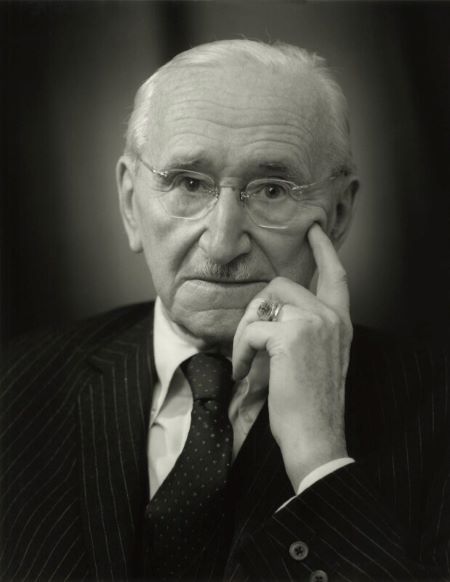Liberty Matters
Another Unpleasant Trade-off
 In response to Boettke's situating Hayek in the broader comparative institutional and mainline tradition, Horwitz and Koppl have pointed to a number of complementary insights: Hayek's theory of mind, Lachmann's concept of plans, Schutz's phenomenology, and insights from contemporary complexity theory. I am largely sympathetic to looking for and exploring these sorts of complementarities that enrich the details of a broadly Hayekian approach. But they come at a cost.
In response to Boettke's situating Hayek in the broader comparative institutional and mainline tradition, Horwitz and Koppl have pointed to a number of complementary insights: Hayek's theory of mind, Lachmann's concept of plans, Schutz's phenomenology, and insights from contemporary complexity theory. I am largely sympathetic to looking for and exploring these sorts of complementarities that enrich the details of a broadly Hayekian approach. But they come at a cost.Both Boettke and I have pointed out that Hayekian ideas are subject to frequent misinterpretation. While some instances of failing to grapple with Hayek's ideas are less defensible, in many cases these misfires are perfectly understandable. Market-process theory is distinct enough from standard price theory that sometimes ideas get lost in translation, even when interlocutors operate with the best of intentions. Hayek's insights about knowledge get translated into standard information theory, and the message gets scrambled. And it goes both ways: sometimes Austrian economists misrepresent mainstream economic theory.[4]
Enrichment of market-process theory is a good thing, but it comes at the cost of ease of communication. It is not a winning strategy to tell a mainstream economist: "You've misunderstood Hayek. Now read Menger, Mises, Kirzner, Lachmann, Schutz, and slog through The Sensory Order." I find all of these works enlightening and even enjoy reading them. But, as Peter Boettke taught me about teaching undergraduates in economics, we need to remember that we Hayekians are the weird ones. The average student is not enamored of economics from day one; we owe it to them to present the subject in an accessible and interesting way. Similarly, the average economist is not already thinking in terms of dynamic coordination and epistemic feedback mechanisms. Piling on additional theoretical baggage does not make those ideas more accessible.
Just as there is a trade-off between the adaptability and stability of institutions in Hayek's work, there is often (though not always) a trade-off between communicating Hayek's insights and enriching them. Communicating Hayek's ideas typically involves finding connections with mainstream economics. The downside of this activity is that shoehorning Hayek's ideas into standard information theory generates misunderstandings. Enriching Hayek's ideas allows us to expand their explanatory power, but often increases the barrier to entry for other social scientists. There may be important exceptions to this trade-off—enrichments that simultaneously make Hayekian ideas more broadly accessible—but I suspect those are exceptional cases.
What makes this trade-off unpleasant is that both projects are important. The four of us seem to agree that Hayek's thought merits wider attention. The four of us also agree that Hayek's thought is a starting point for inquiry, not a fixed and complete doctrine. Some scholarly projects will lean more towards communication and translation, while others will lean more toward enrichment. But it is worth thinking about how to negotiate this trade-off both as individuals and, to the extent that we share common goals, as a network of scholars.
References
Rothbard, Murray. 1956. "Toward a Reconstruction of Utility and Welfare Economics." In On Freedom and Free Enterprise. May Sennholz, ed. Princeton, NJ: D. Van Nostrand.
Endnotes
[4.] Rothbard (1956), for instance, argues that the criterion for a Pareto improvement—a change is good if someone is made better off and no one is made worse off—implies a strong case for laissez faire. In trade both individuals demonstrate that they believe themselves better off, but government intervention removes that element of free choice. But this argument assumes we start from laissez faire. In a world like ours, moving toward laissez faire would mean some government officials would be forced to give up powers they would rather keep, being made worse off. The Pareto standard implies a presumption for the status quo, not for laissez faire.
Copyright and Fair Use Statement
“Liberty Matters” is the copyright of Liberty Fund, Inc. This material is put on line to further the educational goals of Liberty Fund, Inc. These essays and responses may be quoted and otherwise used under “fair use” provisions for educational and academic purposes. To reprint these essays in course booklets requires the prior permission of Liberty Fund, Inc. Please contact oll@libertyfund.org if you have any questions.